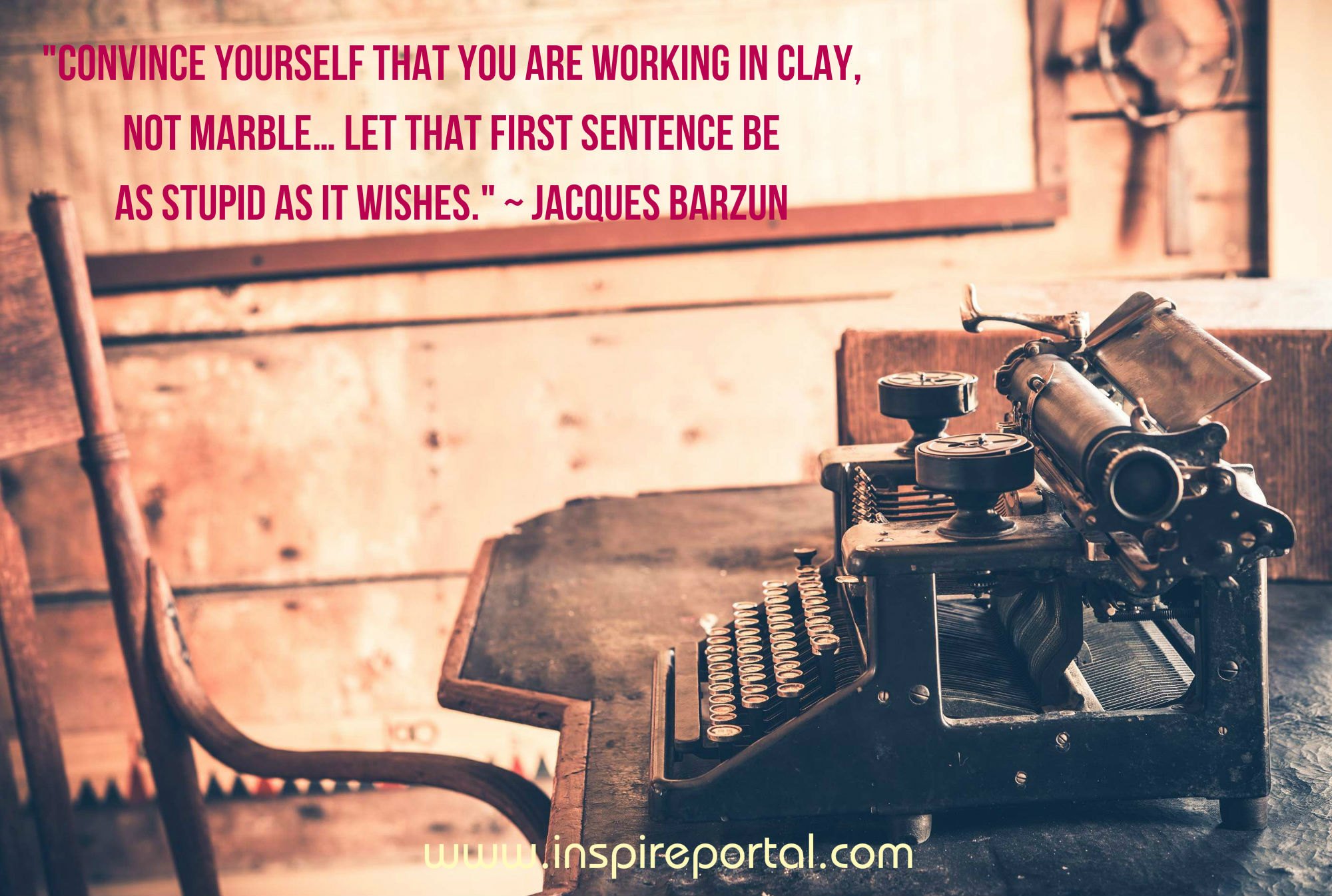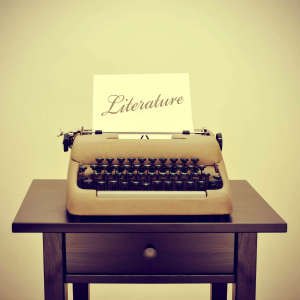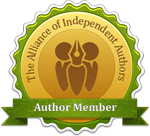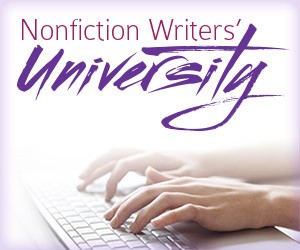When writing is such a deep and vital part of your life, everything can feel off-centre if you are not engaging in the act itself and writing. It’s one of the greatest ironies of all when writers do not do the very thing the love the most and write. Equally, when our writing refuses to flow as we would wish it, that too can ruffle even the most dedicated of literary feathers.
Yet even the most talented authors don’t write brilliant prose instantly or every time. Ernest Hemingway famously said “the first draft of anything is shit,” which is vital to remember, especially if like me, you share a perfectionist streak. Part of the beauty in writing at all is the freedom it grants you but if you are at odds with yourself and your work it can in turn translate into further unease in your writing.
Whether immobilised by the blank page, lacking in passion for your project, thwarted by perfectionism or filled with insecurities and doubt, if you are not writing as well or as often as you’d like, it can bring a feeling of angst that extends far deeper than your creative work.
“It is true that when we begin anything new, resistances fly in our face,” says author Natalie Goldberg. “Make up tricks [to start and keep writing]. Just don’t get caught up in the endless cycle of guilt, avoidance, and pressure. When it is your time to write, write.”
When your writing is going well, everything takes on a far finer hue. It’s like crossing the boarder between India and Nepal, from chaos to calm. The birds start singing, the children playing… OK, maybe taking that a little far but our inner world is joyful when our writing goes to plan.
In the spirit of writing joyfully and with uninterrupted flow, here are nine of my favourite techniques to encourage a loosening of your innate creativity and liberation in your writing.
Writing with the Greats
Hunter S. Thompson typed out two of Ernest Hemingway‘s novels in their entirety (The Sun Also Rises and A Farewell to Arms), in an effort to absorb a little of his favourite author’s literary genius. Though you need not go to such great lengths, Thompson was certainly onto something.
Even just typing an excerpt of writing from your most-loved writers can lend a new joy to your writing, which will be palpable in your prose. Find writing that enlivens your passion and inspires you to write.
Choose an excerpt or chapter of one of your favourite books. As you write it out, whether by-hand, typing on your computer or on a vintage Remington, listen to the language, the cadence, timbre and tone inherent in the writing of the masters. Truly feel it as you read and allow it to feed through you, out of your pen or through the keys and onto the page.
There’s a certain magic that can only be experienced through this act itself. Try it. Absorb the words into the deepest part of you. Read the excerpt aloud afterwards, which has its own power too. Where you take a breath, a pause at the commas and full stops, is where the author took their own breath, which I think is rather beautiful.
Get it Down [Don’t Think it Up]

Get it Down [Don’t Think it Up]
In this state of creative grace, your hands become the conduit for your own delicious prose because you are not agonising about what needs to be, not trying or straining to force something into being.
Instead you allow your pen to move as if guided by an outside force — and keep moving — only it isn’t coming from outside you but through you. Writing in this way allows you to follow the words as they appear as opposed to force them out and onto the page, which can lend a new freedom to your writing.
“Writing is about getting something down, not about thinking something up,” says author and artist, Julia Cameron. “Whenever I strive to ‘think something up’, writing becomes something I must stretch to achieve. When I am trying to think something up, I am straining. When, on the other hand, I am focused on getting something down, I have a sense of attention but not a sense of strain.”
Separate Writing and Editing
To be liberated when writing, and your words free, it’s vital to segregate the process of creating from refining. Separating your writing and editing is crucial because they are two very different processes. It’s far more difficult to slip into that space where your creativity flows if you keep pausing to edit what you have written.
Allow yourself the freedom to make mistakes, the grace to write without your inner red pen forcing you to edit. It is far better to write, however badly, and edit later. It also means you will move far slower, which can cause your motivation to also slow a little.
“All that editing you did while you were writing is essentially wasted time, because you’ll end up going back and altering those first edits again anyway,” says author Victoria Grefer.
“Time is the one thing we never have enough of, so I try not to waste it. Stopping to edit while you write also cuts off your writing momentum cold. That’s never good when it’s avoidable.” Save the editing for later. When it is time to write, write.
Don’t Stop to Research
Whatever you are writing, you often need to research but it’s easy to pause to look something when writing but by doing so, you slip out of that space of creating and stop.
Relocating that space again becomes far more difficult, time too can slip away, especially if – as is a high possibility – you love what you are writing about. My deep love of history can lead to dark deep rabbit holes of research when writing fiction, so the only way to avoid disappearing like Alice herself, is to use that trusty timer.
While writing, write. When researching, only do research. It helps later to use square brackets when writing. So instead of stopping to research, make a note on the page. I use square brackets with little reminders so instead of stopping to think of a character’s name, trait or reaction, write [Add Name circa 1870s] or for something that needs double checking, a simple [CHECK THIS] can be all that’s required to continue without halting your flow.
Ignore Your Monkey Mind [and Write]
Although the ‘monkey mind’ is a Buddhist term, I first heard it during Chi Kung lessons, then later when interviewing and training in the Taoist arts with Master Mantak Chia, who was one of the first Taoist masters to bring the teachings of the Tao to the West.It refers to that irritating inner voice that keeps talking in our fore-brains, refusing to shut-up or silence its doubts, fears, anxieties, or simply just keeps distracting you from the moment and matter at hand. “It keeps us away from our true hearts, from expressing our real thoughts and tells us things such as ‘I can’t write today’. You must try to ignore your monkey mind in order to write.” says Natalie Goldberg.
“We all have tremendously strong monkey minds that are very creative, that can make endless excuses. ‘I really can’t write today because my daughter is having trouble in school. I really can’t write because I have a stomach ache every time I write.’ Monkey mind will always think of new reasons why we can’t write. What I teach is if you want to write, do it and do it now.”
The finest way to tame your monkey mind is through a consistent meditation practice but even taking time out for just the briefest of moments to be still and focus on your breathing can help calm your mind and still your centre, enabling you to write with far more ease. You may also find these psychology techniques useful if internal chatter is inhibiting your writing and flow.
Don’t Over-Think It, Write It
If you find yourself over-thinking your writing it can feel stilted and you stuck. Everything can take far longer — leaving room for your passion to wane — yet the final product is seldom as you envisaged. “Most of us have learnt to write not in a state of release but by rule, with the result generally being quite flat, dull, turgid–most certainly not original, free,” says author Gabriele Lusser Rico.
Instead of feeling stuck, whether through the overwhelm of the size of a project or simply perfectionism and a desire to only write well, drop everything that exists outside this moment, so it is just you and the page, just you and your writing. “Write the truest sentence that you know,” as Hemingway said in ‘A Moveable Feast’.
Write your about your fears, write about your doubts, unease or even anxiety of the blank page. Write what’s on your mind or about something that been bothering you recently. Just write. “The power is always in the act of writing,” says Natalie Goldberg. It is only through the act of writing that the craft is refined and because that act leads to the satisfaction that only comes with completed work, you will find your passion rekindled and joy in the process too.
Make a Writing Playlist
Although I have mentioned this tip before, repeating it as having created a playlist for both characters and book, using this tool has become an amazingly effective way to instantly connect with my characters and the creative process too. As soon as that playlist goes on, my brain clicks into fiction-writing mode. With a playlist for each project, it’s a little like having a subconscious cue on what to write., offering instant inspiration. Try it.
If you love to write fiction, a wonderful way to deepen your connection to your character is to create a playlist just for them:
- Sit and think about a character.
- Next listen to music that you think he or she would pick and make a playlist.
- Before and during your writing sessions that include this character, listen to the playlist. It can truly immerse you in the subtle intricacies of your characters.
Having a playlist for your project can also offer fresh inspiration every time you put it on. The habit of doing so can also signal subconsciously to your brain that you are about to create, which helps you slip into that creative space all the more swiftly.
Many writers and artists find that music itself can be a powerful creative tool that increases creativity and may even enhance your ability to be productive. Novelist and author of the Nail Your Novel writing series, Roz Morris has a blog dedicated exclusively to writers and the music they love to write to.
Amp up your creativity and your sounds, if you love music, create a playlist for each of your projects on Soundcloud. Be aware that if you are listening to music with lyrics, it can be distracting for other language-related creativity including writing, as the lyrics activate the language centre of your brain.
Be Present
If you are resistant to a certain writing task, whether the complete work or an isolated scene, article or even just a sentence that behaves a little waywardly and thwarts your flow, instead of allowing frustration to well up, stop. Take a deep breath and be aware of how you are holding yourself.
When we resist what is happening in the moment we frequently find that we have tensed our physical selves in reaction to our thoughts. By attending to our internal chatter, posture and the tempo of our breath, it becomes easier to train ourselves to be present in the process, write authentically and able to express ourselves unhindered by perfectionism or doubt.
“Becoming a writer is about becoming conscious. When you’re conscious and writing from a place of insight and simplicity and real caring about the truth, you have the ability to throw the lights on for your reader. He or she will recognize his or her life and truth in what you say, in the pictures you have painted, and this decreases the terrible sense of isolation that we have all had too much of,” says author Anne Lamott.
Be loose in your writing. Tap the keys gently, relax your body, soften your face and slow the tempo of your breath.
Get Out of Your Way
Sometimes it’s simply our own desire to write well that ironically prevents the act itself. One technique that allows you to drop this unhelpful stance is to remove the ‘me’ from the equation. Get out of your own way so that any fixation on being right or doing things right fall away, and with them our anxieties too, leaving us free to be present and our pen moving or keys being played as lusciously as the grandest of pianos.
Much about writing is beginning anew. Each project, each line or even each word is drawn from the act of beginning again. We are always learning and always evolving as writers. When you give yourself the permission to not get it right the first time, or even the second time but simply write, keeping moving, the words will appear of themselves.
“All you have to do is put one word after another, and remember how great it feels to be a writer,” says author and creator of The Authorship Programme, Stephanie Lennox. Writing and creative expression is so intrinsic to our being that to be in a place that keeps you full of fear to write is to short-change yourself from one of humanity’s greatest gifts: to create.
“Simply step out of the way and record your thoughts as they roll through you. Writing Practice spends the heart and mind, helps to keep us flexible so that rigid distinctions between apples and milk, tigers and celery disappear,” says Natalie Goldberg. “Every minute we change. It is a great opportunity. At any point, we can step out of our frozen selves and our ideas and begin fresh. That is how writing is. Instead of freezing us, it frees us.”
If you liked this post, feel free to share the love ♥
You may also enjoy:
How to Beat Writer’s Block: 5 Ways to Face the Blank Page
Are You Part Of The Whole Writer Movement?
Why You Finishing Your Novel Is Exactly What The World Needs












Greetings! Very helpful advice within this post!
It’s the little changes which will make the biggest
changes. Thanks for sharing!
Always! Pleasure, Aretha, so happy you enjoyed it!